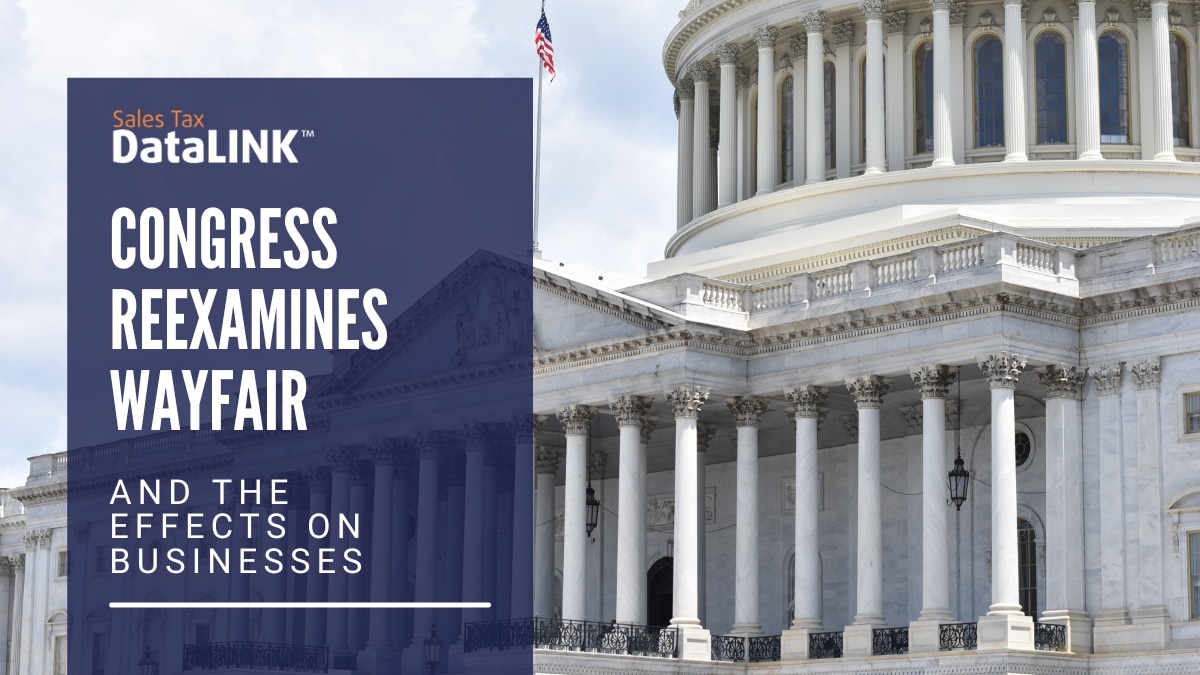The House of Representatives Committee on Small Business, Subcommittee on Economic Growth, Tax, and Capital Access, held a hearing last week on “South Dakota v. Wayfair, Inc.: Online Sales Taxes and their Impact on Main Street.”
In 1992, the Supreme Court’s Quill decision stated that a company didn’t have to charge sales tax on their sales in any state where they didn’t have a physical presence. In 2018, the Wayfair decision overturned Quill and allowed states to compel remote sellers to charge sales tax. Since then, most states have started making remote sellers comply with their sales tax regulations. A few court cases have been decided, some states have made changes in their rules, and a lot of problems have come up.
It’s a good time for Congress to look at the decision.
Small business owners share their experiences
Small business owners were among those testifying at the hearing. The head of a family-owned furniture business testified that her company has spent “well over 1,500 hours on this thus far, with a total cost of over $75,000.”
She pointed out that the thresholds for a company’s compliance are not the same from one state to another. The threshold amounts are different. Some are based on taxable revenue and someone’s gross revenue, including transactions that don’t involve sales tax. Sometimes tax collection requirements begin when the threshold is reached, but sometimes reaching the threshold sales means sales tax compliance is required for the full year — that is, retroactively.
For her company — and we find that this is true for most companies — the only solution was to register and file for all the states in which they might ever have to collect sales tax.
She also pointed out that many states have sales tax at the city or county level, too. She figures her company has to deal with 10,000 tax jurisdictions. For example, her company has to file a 2,046-page form for Colorado, plus 97 additional forms for individual jurisdictions in Colorado.
“Please understand,” she said, “my company is not opposed to collecting and remitting sales taxes. We have done this with Illinois customers for over 30 years. Our struggle, however, is with the chaotic manner in which overwhelmingly complex requirements have been mandated, as well as the expense in time, money, and energy these mandates have imposed on us.”
Another company had spent $183,500 and 3,800 labor hours to collect just $79,423 in sales tax across 32 states. They had decided not to sell to customers in Colorado at all because of the complexity of the laws there, but still spent more than twice as much on sales tax compliance than they remitted to the states. “We sell mostly wholesale,” the owner explained, “so we face a disproportionate new burden for compliance in order to collect a very small amount of sales tax revenue for states.”
This company had a nightmarish experience in its first year of filing sales tax. They had errors or problems with their filing in 36 states. In many cases, they owed less than $100, but some states placed a lien on their property, and most were unable to tell them where the error had occurred or what they should do.
“We estimate that going forward, multistate sales tax and exemption certificate compliance will cost our small business approximately $76,3307 per year in fees and labor. That equals more than 50% of our annual business net income.”
Sales tax filing software
While the Supreme Court, in their opinions on Wayfair, airily assumed that software would solve all the complexities of filing sales tax in multiple states, the companies testifying in the congressional hearing didn’t have that experience. While they were told that they would have free, subsidized software provided by the states, none of them qualified for subsidies. They found that their options were limited, and most of the choices given on state websites were just plain too expensive for them to use.
All of them found that they had to put in many hours to figure out their responsibilities and how to use the software. A witness from the American Institute of Certified Public Accountants recommended standardized tax laws across the country.
While we wait for that to happen, you should call us to discuss our sales tax reporting software and sales tax advisory services. We can free you of the time investment at a completely affordable cost. Call us now and let us impress you.




